What’s Trending in Aerospace – August 1, 2021
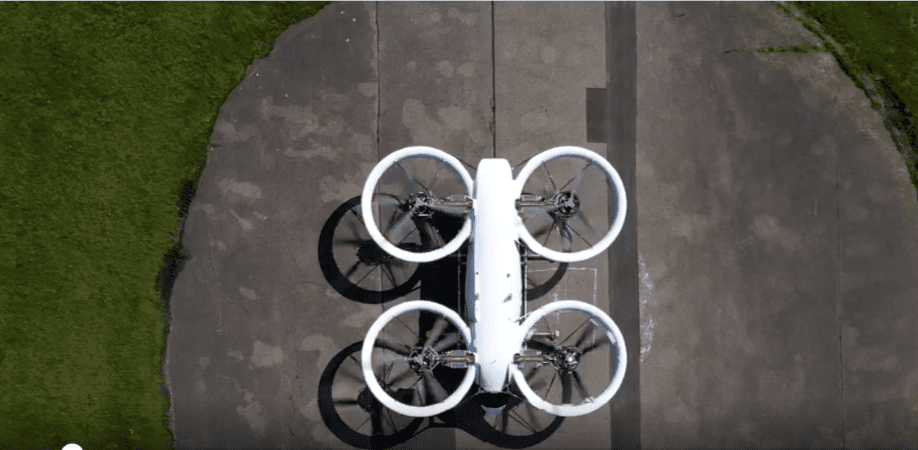
Check out the Aug. 1 edition of What’s Trending in Aerospace, where editors and contributors for Avionics International bring you some of the latest headlines and updates happening across the global aerospace industry.
Commercial
Boeing Begins Rebound, Turns A Profit On Higher Sales
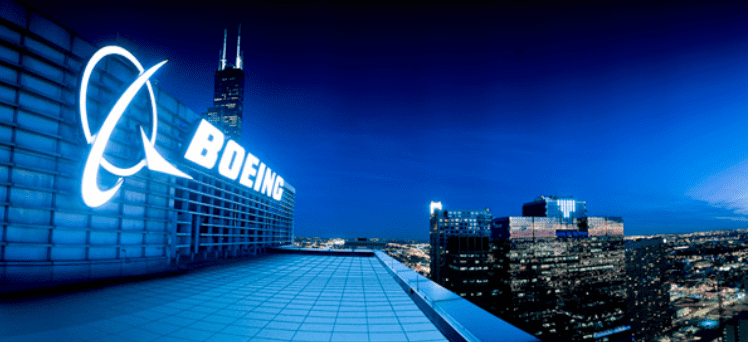
On Wednesday July 28 Boeing showed it is on the way back, from pandemic lows posting strong sales and a profit in the second quarter as it increased aircraft deliveries and passengers in some domestic markets resume flying.
Sales increased 44 percent to $17 billion from $11.8 billion a year ago largely on the back of its Commercial Airplanes segment as the company delivered more aircraft to its customers. The services and defense businesses also reported top line gains.
“While we still have a ways to go before a full rebound, it is encouraging to see the commercial market improving, enabled by continued vaccine distribution and increasing travel demand, particularly in domestic markets,” Dave Calhoun, Boeing’s president and CEO, said in a message to employees posted on the company’s website. “Going forward, we will closely monitor case rates, vaccine distribution, travel protocols and global trade as key indicators for recovery.”
Calhoun said 2021 is proving to be an “inflection point” in its recovery.
“We are turning a corner and the recover is gaining momentum,” he said on the company’s earnings call.
Boeing reported $567 million in net income, $1 earnings per share (EPS) versus a $2.4 billion ($4.20 EPS) loss a year ago. Excluding various pension adjustments, core earnings were 40 cents EPS versus a $4.79 EPS loss a year ago, well above the 83 cents EPS loss that analysts were forecasting.
Defense sales increased 4 percent to $6.9 billion on higher volume on the KC-46A and P-8A Poseidon maritime patrol aircraft.
The commercial airplanes business posted $6 billion in sales, up 268 percent as aircraft deliveries nearly tripled to 79 planes, and a $472 million operating loss versus a $2.8 billion loss a year ago.
CNN: Jet Fuel Shortage at Some US Airports Caused by Lack of Pipeline Space
According to a July 27 report published by CNN Business, some airports based on the western U.S. are facing jet fuel shortages mainly caused by a lack of pipeline space and tank truck drivers.
“At several western US airports, there’s not enough jet fuel to meet the increased demand for leisure travel,” the report says. “Part of the problem is the shortage of tank truck drivers needed to deliver fuel. An estimated 20% of tankers nationwide are parked due to a lack of qualified drivers, according to an industry trade group. That shortage has already been affecting gas stations. But airlines and airports are also struggling to get the fuel they need because pipelines shifted away from carrying jet fuel when air travel ground to a near halt last year. Now jet fuel isn’t getting the pipeline space it needs to keep up with the recent surge in air travel.”
Boeing Publishes First Aerospace Sustainability Report
Boeing on July 26 released its first Sustainability Report. In the report, the company shares its vision for the future of sustainable aerospace, establishes broad sustainability goals and highlights environmental, social and governance (ESG) progress in alignment with global sustainability standards, according to a July 26 press release.
“In September 2020, amidst a global pandemic, Boeing formed a Sustainability organization dedicated to advancing our ESG efforts across the enterprise. As we continue on this journey, we are pleased to publish our first comprehensive report, focused on stakeholder responsiveness and data transparency,” Boeing Chief Sustainability Officer Chris Raymond said in the release. “We know there’s still work to do and are committed to communicating our progress and holding ourselves accountable to ensure the aerospace industry is safe and sustainable for generations to come.”
Check out the full report here.
Avelo Airlines Gets GE Digital Safety Solution
Avelo Airlines will begin using GE Digital’s flight data monitoring and processing solution to optimize safety, according to a July 29 press release.
GE Digital’s Electronic Flight Operation Quality Assurance (eFOQA) uses algorithms to provide analytics and data processing, according to the release. The eFOQA will use flight data to create higher safety and efficiency standards.
“GE Digital industrial software helps our customers embrace the future of flight through sustainable operations, applying proven aviation practices to emerging technologies, and adapting to an increasingly digital world,” Andrew Coleman, General Manager of GE Digital’s Aviation Software business, said in a statement. “We are delivering breakthrough business outcomes for our aviation customers in safety, sustainability, fuel efficiency, predictive maintenance, and pilot performance.”
Business & GA
First Sustainable Wings Certification Goes to Gulfstream
The National Aeronautic Association (NAA) has awarded its first Sustainable Wings Certification to Gulfstream after the company flew a roundtrip record-setting flight from Savannah, GA to San Francisco, CA and back, according to a July 29 release.
“Aviation must become more sustainable and is becoming more sustainable,” Greg Principato, President of NAA, said in a statement. “As the official record keeper of American aviation for more than a century it is incumbent on NAA to recognize this and to encourage the use of sustainable fuels and practices. A more sustainable industry is an industry with a bright future. We believe this program is one of many initiatives that will encourage a more sustainable industry.”
A company can earn the Sustainable Wings Certification by setting records using sustainable aviation fuels (SAF), according to the release.
“Gulfstream and the National Aeronautic Association share a commitment to demonstrate environmentally friendly practices in the business aviation industry,” Mark Burns, president of Gulfstream, said in a statement. “Being the first to achieve a ‘Sustainable Wings’ certification on a speed record is a reflection of that commitment and illustrates SAF’s ease of use, which helps us raise its visibility as part of our efforts to increase availability around the world.”
Skye Aviation Purchases 15 eFlyer 800 Aircraft
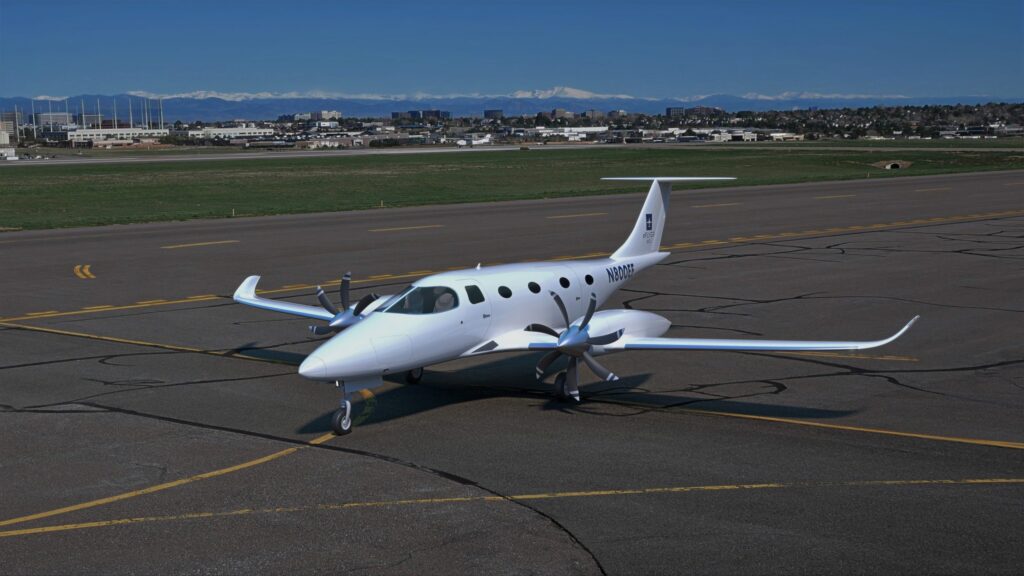
The eFlyer 800 program is aiming to provide a regional all-electric airplane with lower operating costs and no CO2 emissions. (Bye Aerospace)
Skye Aviation, an aircraft leasing company, has purchased 15 of Bye Aerospace’s eFlyer 800 aircraft, the company announced on July 29.
“Skye Aviation is the first all-electric aircraft leasing company in the world” George E. Bye, CEO of Bye Aerospace, said in a statement. “We are honored by their selection of the eFlyer 800 to be the foundation for their fleet, and we applaud their forward-reaching strategy. Momentum for electric aviation continues to grow at an incredible pace.”
The eFlyer 800 program is aiming to provide a regional all-electric airplane with lower operating costs and no CO2 emissions, according to the release.
“Skye Aviation is thrilled to be the world’s first all-electric aircraft leasing firm and to be able to exclusively offer Bye Aerospace’s eFlyer family of eCTOL aircraft,” Carol Johnson with Skye Aviation, said in a statement. “Skye fully supports sustainable, safe aviation leasing solutions for our customers while at the same time slashing eCTOL operating costs, aircraft noise, maintenance and supply requirements efforts. We embrace innovation that offers our customers far less capital-intensive solutions for training, passenger, air cargo, private, business, and military operations. In this sense, we all win.”
Military
Airbus Sees Stable Revenues in Defense and Space in First Half of 2021
Revenues at Airbus Defence and Space were flat in the second quarter of 2021, at 2.4 billion euros ($2.9 billion), compared to the same quarter in 2020.
This was in line with the division’s Q1 results as well, and the division reported flat revenue of 4.5 billion euros ($5.4 billion) in the first half of the year. Defence and Space raised its adjusted EBIT in the first half of the year, up 23 percent to 229 million euros ($272 million).
The company highlighted that revenues at Airbus Defence and Space were broadly stable compared to last year, with two A400M military airlifters delivered in the first half.
Net order intake for the division was down in the first half of the year, at 3.5 billion euros ($4.2 billion). This is down 37 percent compared to the first half of 2020.
Company-wide, Airbus reported a 70 percent increase in revenue from the same time last year. The company said this was mainly driven by the higher commercial aircraft deliveries at Airbus and higher revenues at Airbus Helicopters. Revenue was 14.2 billion euros ($16.9 billion).
“These half-year results reflect the commercial aircraft deliveries, our focus on cost containment and competitiveness, and the good performance in Helicopters and Defence and Space. Although the COVID-19 pandemic continues, the numerous actions taken by the teams have delivered a strong H1 performance. This enables us to raise our 2021 guidance although we continue to face an unpredictable environment,” commented Airbus Chief Executive Officer Guillaume Faury.
Defense, Commercial Power Raytheon Technologies To Strong Second Quarter
Raytheon Technologies Corp. on Tuesday reported strong second quarter financial results, buoyed by the company’s defense businesses and a rebound in the commercial aerospace market as the effects of the COVID-19 pandemic wane somewhat.
Net income swung to a $1 billion, 68 cents earnings per share (EPS) profit versus a $3.8 billion ($2.55 EPS) loss a year ago when the pandemic was raging. Excluding discontinued operations, acquisition accounting adjustments and non-recurring charges, adjusted net income of $1.6 billion ($1.03 EPS) was up 168 percent and topped consensus estimates by 10 cents per share.
Sales in the quarter of $15.9 billion were 13 percent higher than $14.1 billion a year ago with 10 percent of the growth organic.
Based on first half results and ongoing trends, RTC increased its outlook for earnings, sales and free cash flow for 2021. The guidance for sales was increased by $500 million on the low end of the range to between $64.4 billion and $65.4 billion, with gains driven primarily by the Collins Aerospace segment followed by the other three operating groups.
MQ-4C Triton Flies with IFC-4 for the First Time
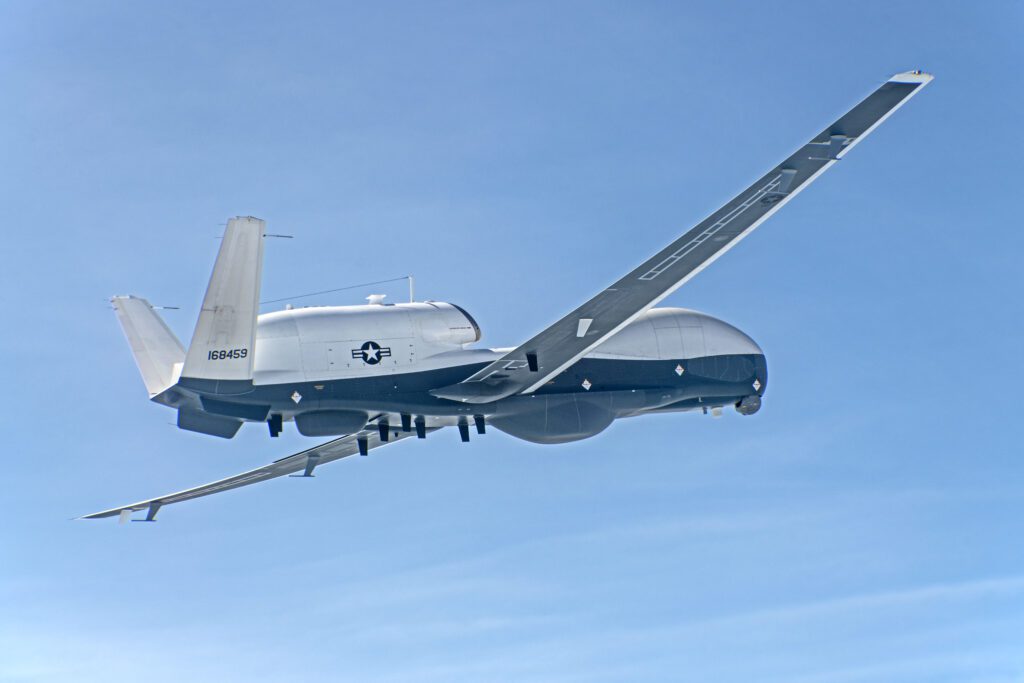
Triton takes first flight with IFC-4 intelligence configuration. (Northrop)
Northrop Grumman’s high-altitude long-endurance (HALE), maritime intelligence, surveillance, and reconnaissance (ISR) platform the MQ-4C Triton flew for the first time with the intelligence configuration IFC-4, according to a July 30 release from the company.
“The multi-intelligence configuration of Triton will completely revolutionize how the U.S. Navy and Royal Australian Air Force conduct maritime patrol and reconnaissance missions,” Doug Shaffer, vice president and program manager of Triton programs at Northrop Grumman, said in a statement. “Multi-intelligence capabilities, coupled with Triton’s long-range sensors and 24-hour endurance, will enable an unprecedented amount of maritime situational awareness to inform real-time decision making at tactical to strategic levels.”
eVTOLs
Airbus Releases New Video of CityAirbus eVTOL

CityAirbus is Airbus’ urban air mobility demonstrator aircraft. (screenshot from Airbus’ post)
Airbus Helicopters released a new video of its electric vertical takeoff and landing (eVTOL) aircraft, CityAirbus, in a social media post on July 29.
CityAirbus is Airbus’ urban air mobility demonstrator aircraft. The aircraft has a takeoff weight of 2,310 kg and can carry four passengers. It also uses a distributed drive system.
Archer and Atlas Crest Reduce Valuation by 38%
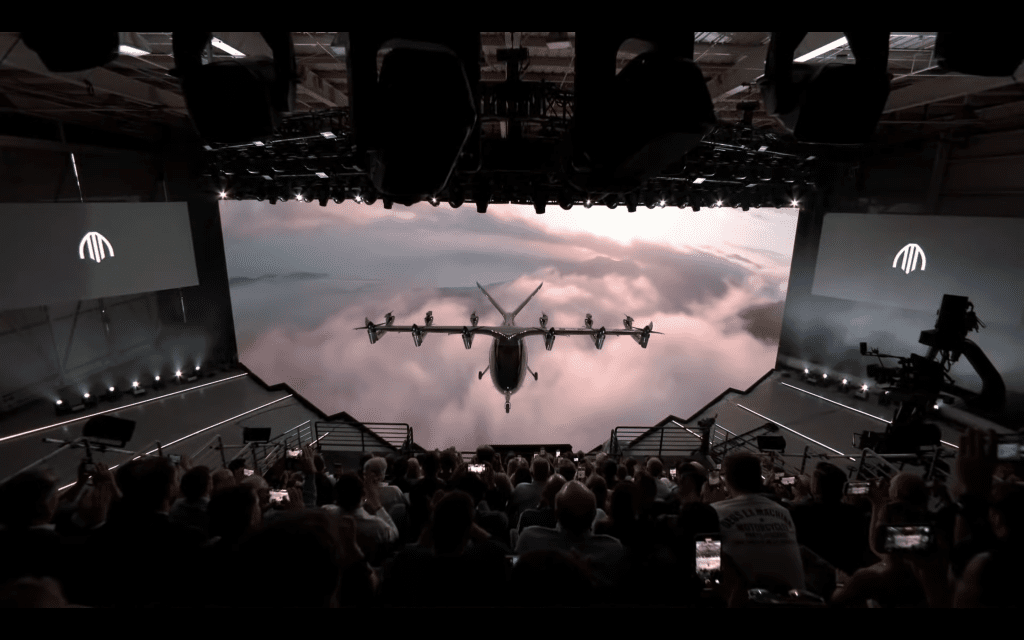
Archer debuted its first demonstrator aircraft, Maker, during an immersive event in Los Angeles, California on June 10 where they used movie production technology and a 2,4000 sq ft XR volume space to simulate the aircraft in flight. (screenshot taken from the event video)
Archer, the air taxi developer, and Atlas Crest Investment Corp, a special purpose acquisition company, have revised the valuation of their previously announced transaction from $2.7 billion to $1.7 billion, according to a July 29 release from the company.
“We are focused on building not just an electric aircraft, but a sustainable, enduring eVTOL ecosystem, and having tremendous investor support and momentum is critical to our near- and long-term success,” Brett Adcock, Archer co-founder and co-CEO, said in a statement. “Today’s announcement reflects our commitment to transparency and shareholder alignment now and into the future. We are making this bold move to ensure our eVTOL market leadership.”
Archer also announced the addition of Oscar Munoz, former United Airlines chairman and CEO, to its board, according to the release.
Volocopter Takes to the Skies at EAA AirVenture
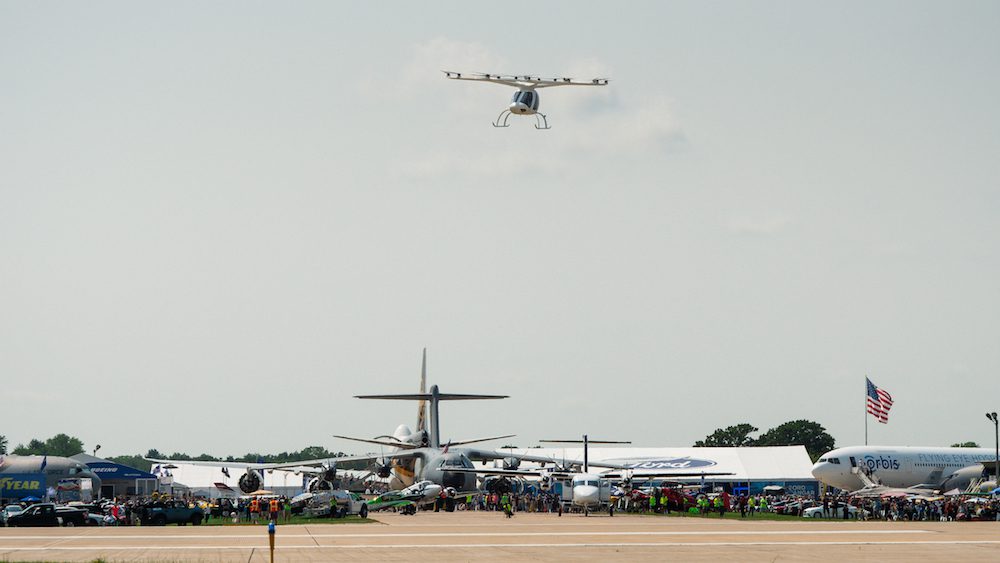
Volocopter’s eVTOL performed a test flight during the Experimental Aircraft Association’s (EAA) AIrVenture 2021 convention in OshKosh, Wisconsin.
German startup Volocopter’s electric vertical takeoff and landing (eVTOL), Volocopter 2X, completed the first ever publicly crewed test flight of an eVTOL in the U.S., during the Experimental Aircraft Association’s AirVenture 2021 event in Wisconsin.
The crewed Volocopter 2X took off at 2:45 PM CST for a 4-minute flight at ~164 ft and a top speed of 18 mph over Wittman Regional Airport as part of EAA’s AirVenture aviation celebration. Event attendees were able to watch the Volocopter 2X fly and take a seat in the VoloCity model at Volocopter’s booth to experience these aircraft.
“Volocopter successfully conducting the first US public manned test flight of an eVTOL company in the US is a milestone for the industry and a reminder that our commercial launch is fast approaching. We can talk about our lead in certification, low noise emissions, and global partnerships all we want, but nothing shows just how close we are to launch UAM as a service as does flying an air taxi in front of crowds and inviting people to sit in our aircraft. Air taxis are coming, and we are working to bring electric flights to cities around the globe in the next two to three years,” Florian Reuter, Volocopter CEO said in a statement.
Space
Virgin Group Founder Sir Richard Branson to Speak at SATELLITE 2021

Less than two months after captivating global audiences with a trip into suborbital space, Virgin GroupFounder Sir Richard Branson will appear at the SATELLITE 2021 Conference to share stories from his experience and his views on the future of commercial space development. Branson will deliver SATELLITE 2021’s opening general session keynote address on Thursday, September 9 at 8:30 a.m. EDT at the Gaylord National Convention Center in National Harbor, Maryland.
Branson made his first virtual appearance at SATELLITE’s 2015 event in a video address to attendees announcing his plans to develop Virgin Galactic into commercial suborbital space travel company.
AST SpaceMobile to Launch Demo Satellite With SpaceX
AST SpaceMobile will launch the prototype satellite BlueWalker 3 for its space-to-cell network on a SpaceX rocket in March 2022. The company announced the launch agreement on July 29.
Describing its BlueWalker 3 test satellite, AST SpaceMobile said it has an aperture of 693 square feet and is designed to communicate directly with cell phones via 3GPP standard frequencies. AST SpaceMobile is working to launch satellites that can communicate directly with standard cell phones to create a broadband network to eliminate connectivity gaps.
The post What’s Trending in Aerospace – August 1, 2021 appeared first on Aviation Today.
Check FastApn access for commercial satcoms at Fastapn
Flytlink – Avionics, Satcom’s and IFE Consultants






